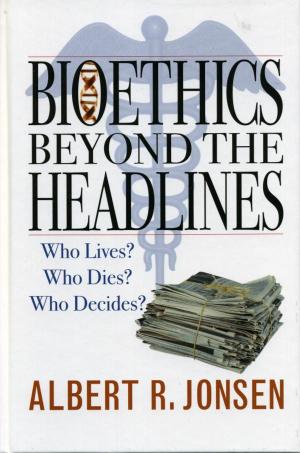Pharmaphobia
How the Conflict of Interest Myth Undermines American Medical Innovation
Nonfiction, Health & Well Being, Medical, Reference, Health Policy, Health, Health Care Issues| Author: | Thomas P. Stossel | ISBN: | 9781442244634 |
| Publisher: | Rowman & Littlefield Publishers | Publication: | April 23, 2015 |
| Imprint: | Rowman & Littlefield Publishers | Language: | English |
| Author: | Thomas P. Stossel |
| ISBN: | 9781442244634 |
| Publisher: | Rowman & Littlefield Publishers |
| Publication: | April 23, 2015 |
| Imprint: | Rowman & Littlefield Publishers |
| Language: | English |
For millennia, human survival depended on our innate abilities to fight pathogens and repair injuries. Only recently has medical science prolonged longevity and improved quality of life. Physicians and academic researchers contribute to such progress, but the principal contributor is private industry that produces the tools – drugs and medical devices – enabling doctors to prevent and cure disease. Heavy regulation and biology’s complexity and unpredictability make medical innovation extremely difficult and expensive.
Pharmaphobia describes how an ideological crusade, stretching over the last quarter century, has used distortion and flawed logic to make medical innovation even harder in a misguided pursuit of theoretical professional purity. Bureaucrats, reporters, politicians, and predatory lawyers have built careers attacking the medical products industry, belittling its critical contributions to medical innovation and accusing it of non-existent malfeasance: overselling product value, flaunting safety and corrupting physicians and academics who partner with it. The mania has imposed “conflict-of-interest” regulations limiting or banning valuable interactions between industry and physicians and researchers and diverting scarce resources from innovation to compliance. The victims are patients suffering from cancer, dementia, and other serious diseases for which new treatments are delayed, reduced, or eliminated as a result of these pointless regulations. With breathtaking detail, Thomas Stossel shows how this attack on doctors who work with industry limits medical innovation and inhibits the process of bringing new products into medical care.
For millennia, human survival depended on our innate abilities to fight pathogens and repair injuries. Only recently has medical science prolonged longevity and improved quality of life. Physicians and academic researchers contribute to such progress, but the principal contributor is private industry that produces the tools – drugs and medical devices – enabling doctors to prevent and cure disease. Heavy regulation and biology’s complexity and unpredictability make medical innovation extremely difficult and expensive.
Pharmaphobia describes how an ideological crusade, stretching over the last quarter century, has used distortion and flawed logic to make medical innovation even harder in a misguided pursuit of theoretical professional purity. Bureaucrats, reporters, politicians, and predatory lawyers have built careers attacking the medical products industry, belittling its critical contributions to medical innovation and accusing it of non-existent malfeasance: overselling product value, flaunting safety and corrupting physicians and academics who partner with it. The mania has imposed “conflict-of-interest” regulations limiting or banning valuable interactions between industry and physicians and researchers and diverting scarce resources from innovation to compliance. The victims are patients suffering from cancer, dementia, and other serious diseases for which new treatments are delayed, reduced, or eliminated as a result of these pointless regulations. With breathtaking detail, Thomas Stossel shows how this attack on doctors who work with industry limits medical innovation and inhibits the process of bringing new products into medical care.















